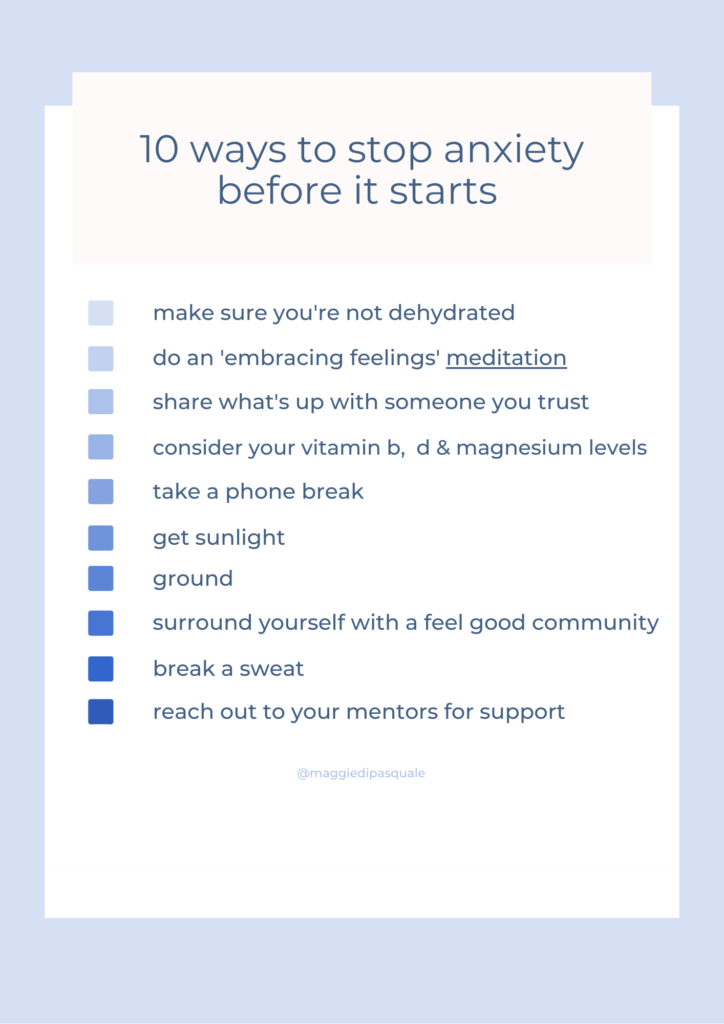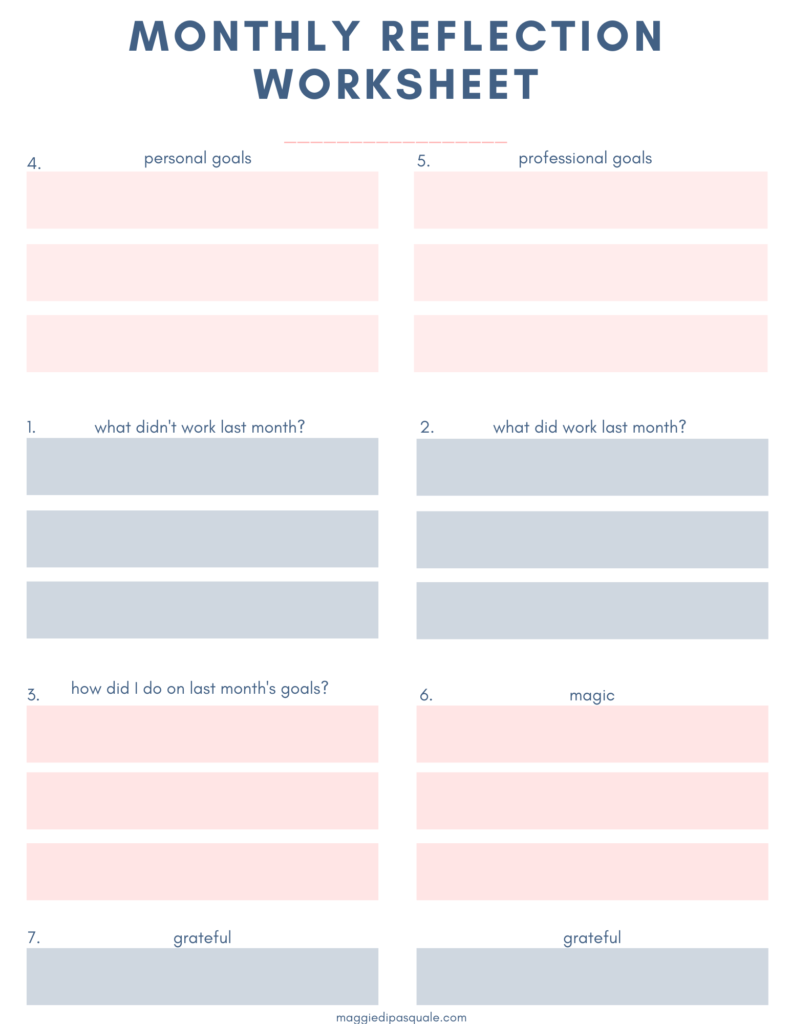10 tips for Managing Anxiety from a Mind Body Perspective
Sometimes anxiety can feel like a mystery and the more I study it, the more I see that it’s often a perfect storm of many factors. As a sensitive person, I’ve found myself in anxiety until I started addressing it through a mind, body perspective. It’s also how I work in 1:1 sessions with success as well.
First, there’s a difference between stress and anxiety. Stress, for me, is when you’re having a reaction to a situation. For example, you’re stressed before a test, you take the test, and then you don’t feel stress after. You’re dreading having a hard conversation, you have it, and you feel relief after. The stress goes away when the situation resolves itself.
Anxiety is a little bit different. It can be excessive worry especially when there’s no stressor involved. I know that a lot of my anxiety comes from worrying about things that will probably never happen and then I get in what I call an anxiety loop where I keep looping the same fear fantasy in my head over and over again. Anxiety is really common and sometimes we get in a loop because it feels really protective. Worry can feel like we are being productive in managing and protecting ourselves.
How does all this anxiety stuff start anyway? The short answer is I don’t really know. We are studying it more and more and learning about anxiety, the brain, even your gut biome, and how hormones can affect anxiety. There are so many different factors that go into anxiety. When I’m anxious, it’s usually from a perfect storm of factors so I look at the solution by combining mind, body, soul, practices.

Here are my 10 tips!
The first thing I do when I feel anxiety creeping up behind me is I ask myself am I dehydrated? I know that’s super simple, but what you eat and drink affects how you feel. I’m not saying that water cures everything, but check in with what you’ve consumed during the day. Have you had a lot of sugar? Did you drink alcohol? All of this contributes to your body’s biological responses and it could be causing anxiety.
- Stop, drop, and feel your feelings
Anxiety sometimes can come from resisting feeling emotions. In acknowledging what’s coming up for you, you can allow your feelings to move through you. When we push our feelings down, they pop up in a place you don’t expect. Here’s the meditation I use when I need to slow down and feel my feels.
- Share what’s up with someone you trust
Having someone hold space for you is very healing and allows you to be supported. Sharing what’s up for you with someone safe, comforting, and kind can help you process uncomfortable feelings.
I always think it’s important to consider your vitamin levels. Studies have shown that vitamin B, vitamin D, and magnesium levels can all affect your mood so when I’m feeling anxiety come on I made sure I’m taking my supplements. This is something also to bring up to your doctor.
Sometimes when we’re getting anxious, we might want to use our phones as a way to numb out and avoid feelings feels. This is also an important tip if your phone is the source of your anxiety. Taking a phone break allows you to be more in the present moment and in your body.
Sunlight is an underrated mood booster! It’s so important for your circadian rhythm and it’s a source of vitamin D. On a practical level, getting out of wherever you’ve been sitting for too long can be just like an instantaneous way to help you start to shift your mood.
Grounding is a technique that connects you to the earth as a way to co-regulate with nature. This can be putting your feet in grass, touching a tree, or meditating outside. I like to lie in the grass and allow myself to meditate in nature.
- Surround yourself with supportive people
Humans are herd creatures. We are not meant to be isolated. Surrounding yourself with supportive people is important to our mental wellness. If you feel like you’re struggling in the support department here are some additional tools:
fitting in for old souls
finding your tribe
mentor minute with Megan McDowell
Moving your body can change how you feel from the inside out. Whether it’s taking a walk, doing 10 jumping jacks, or going to yoga something is better than nothing. I like going to dance because it makes me focus on something other than my thoughts. Moving your body is an important way to maintain mind, body, balance. Bonus if you can break a sweat outside!
When you feel anxiety coming on, it’s the perfect time to set up a session with your mentor or therapist. Your friends sometimes don’t know it at all even if they’re a good source of support, especially when you’re in high school, college, or post grad. I know that in my worst anxiety that mentors have been transformational and I don’t feel like I would have gotten through it without them.
These are the 10 things I think about when I feel anxiety coming on as a way to build back my foundation for feeling better. I know anxiety can be very uncomfortable and I’m sending everyone so much love!


